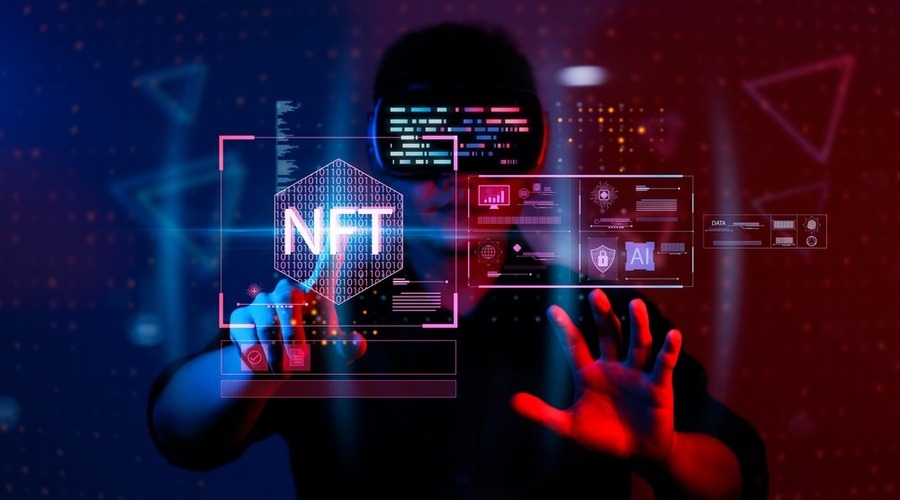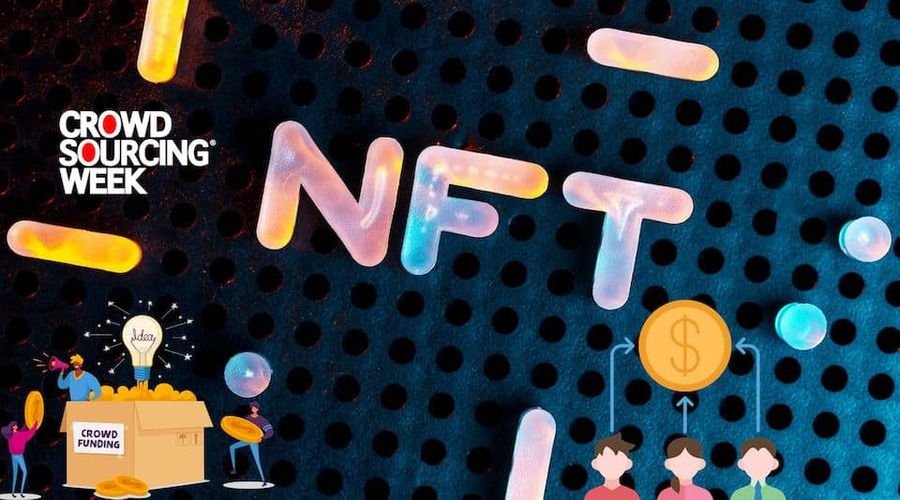In recent years, Non-Fungible Tokens (NFTs) have emerged as a revolutionary technology with the potential to reshape various industries. Initially popularized in the art world, NFTs have quickly found applications beyond the realm of digital art. One area where NFTs are making significant strides is in scientific crowdfunding and crowdsourcing. In this article, we will explore the role of NFTs in enabling new possibilities for funding scientific research, facilitating collaboration, and unlocking the potential of collective intelligence.
The Power of NFTs
Understanding NFTs
NFTs are unique digital assets that are built on blockchain technology, which ensures their authenticity, scarcity, and ownership. Unlike cryptocurrencies like Bitcoin or Ethereum, which are fungible and can be exchanged on a one-to-one basis, NFTs are indivisible and represent something unique. Each NFT carries metadata that defines its distinct properties, making it one-of-a-kind in the digital realm.
Benefits of NFTs in Scientific Crowdfunding
The utilization of NFTs in scientific crowdfunding offers several advantages. Firstly, it enables researchers and institutions to tokenize their intellectual property and create a digital representation of their scientific work. This tokenization allows them to retain ownership, control, and monetize their research efforts in new and innovative ways. Furthermore, NFTs provide a transparent and immutable record of ownership and provenance, instilling trust and accountability in the scientific community.
NFTs as a Fundraising Tool
Tokenizing Intellectual Property
By tokenizing their intellectual property as NFTs, researchers can establish a direct connection between their work and potential supporters. Interested individuals can purchase these NFTs, effectively acquiring a stake in the research project. This method of fundraising empowers researchers to bypass traditional funding channels and directly engage with their audience, fostering a sense of community and shared purpose.
Generating Revenue Streams
NFTs also offer opportunities for researchers to generate ongoing revenue streams. For instance, researchers can create limited-edition NFTs that grant exclusive access to project updates, early research findings, or even participation in experiments or fieldwork. This provides an incentive for supporters to acquire and hold these NFTs, knowing that they are contributing not only to the advancement of science but also gaining unique benefits in return.
Engaging the Community
Scientific research is often seen as an exclusive domain accessible only to experts. NFTs, however, have the potential to democratize access and engage a wider audience in the scientific process. By minting NFTs that represent scientific concepts, data visualizations, or even scientific instruments, researchers can spark curiosity and enable enthusiasts to participate in the scientific journey. This inclusivity fosters a collaborative spirit and encourages interdisciplinary dialogue.
NFTs as a Collaboration Tool
Facilitating Open Science
Open science is a movement aimed at making scientific research more accessible, transparent, and collaborative. NFTs can play a significant role in advancing this vision by enabling the sharing of scientific data and findings in a secure and traceable manner. Researchers can tokenize datasets, research papers, or experimental protocols, allowing others to access and build upon their work. NFTs provide a mechanism for attributing credit and recognition to contributors in a decentralized and immutable manner.
Encouraging Data Sharing
Data sharing is a critical aspect of scientific progress. NFTs can incentivize researchers to share their data by introducing mechanisms such as royalties or licensing agreements tied to the NFT ownership. This encourages collaboration and data integration across different disciplines, leading to new insights and discoveries that may not have been possible without the collective effort facilitated by NFTs.
Promoting Interdisciplinary Research
Interdisciplinary research involves collaboration between different scientific domains to tackle complex problems. NFTs can act as a catalyst for interdisciplinary collaboration by enabling researchers from diverse fields to tokenize their expertise and knowledge. This tokenization process can facilitate the formation of multidisciplinary teams, where NFT holders with complementary skills can come together to work on innovative research projects that require diverse perspectives.

NFTs and Collective Intelligence
Harnessing the Wisdom of the Crowd
The concept of collective intelligence leverages the collective knowledge, insights, and skills of a group to solve complex problems. NFTs can serve as a mechanism for harnessing the wisdom of the crowd in scientific endeavors. By minting NFTs that represent specific research challenges or questions, researchers can invite contributions from a diverse range of individuals. The collective intelligence generated through this process can provide novel perspectives, innovative solutions, and valuable feedback for advancing scientific understanding.
Token Curated Registries
Token Curated Registries (TCRs) are decentralized systems that allow participants to curate and verify the quality or relevance of a specific list or dataset. NFTs can be utilized as voting tokens within TCRs, enabling participants to signal their preferences and influence the curation process. In the scientific context, TCRs powered by NFTs can facilitate the identification of high-quality research projects, datasets, or scientific resources, helping researchers and funders make informed decisions.
Incentivizing Participation and Expertise
NFTs can be used to incentivize participation and expertise within scientific communities. For instance, researchers can mint NFTs that grant holders exclusive access to conferences, workshops, or collaborative opportunities. Additionally, NFTs can represent certifications or achievements, serving as a badge of expertise in specific scientific domains. These incentives foster a vibrant ecosystem where individuals are motivated to actively contribute their knowledge and skills, leading to accelerated scientific progress.
Challenges and Future Directions
While NFTs hold great potential in scientific crowdfunding and crowdsourcing, several challenges and considerations need to be addressed. Regulatory frameworks and ethical guidelines surrounding the utilization of NFTs in scientific contexts require careful attention to ensure the protection of intellectual property rights, privacy, and data security. Scalability concerns related to blockchain technology and environmental sustainability also need to be addressed to enable widespread adoption of NFTs in scientific research.
- Regulatory Frameworks: Developing clear and robust regulatory frameworks that address intellectual property rights, data privacy, and security concerns associated with NFTs in scientific crowdfunding and crowdsourcing.
- Ethical Considerations: Ensuring ethical guidelines are in place to protect the interests of researchers, participants, and the wider scientific community when utilizing NFTs. This includes considerations for fair distribution of rewards and preventing exploitation.
- Scalability: Addressing scalability challenges of blockchain technology to accommodate the increasing demand and transaction volume within the scientific community. Enhancing blockchain networks to handle larger-scale tokenization and crowdsourcing activities.
- Energy Efficiency: Exploring energy-efficient alternatives and eco-friendly solutions for blockchain networks that power NFTs. Mitigating the environmental impact of energy consumption associated with blockchain mining and transaction processing.
- Interoperability: Working towards interoperability standards among different blockchain networks to enable seamless transfer and exchange of NFTs across platforms. This would enhance collaboration and foster a more interconnected scientific ecosystem.
- Community Engagement: Encouraging wider participation and engagement from the scientific community in embracing NFTs. Educating researchers, institutions, and funders about the benefits, opportunities, and potential risks associated with NFTs.
- Data Standardization: Developing standardized protocols and formats for representing scientific data and research findings as NFTs. This would facilitate data integration, interoperability, and reproducibility of scientific research.
- Reputation and Validation: Establishing mechanisms to validate the credibility and authenticity of scientific NFTs. This could include reputation systems or peer-review mechanisms tied to NFT ownership.
- Long-term Sustainability: Ensuring the long-term sustainability and viability of NFT-based scientific crowdfunding and crowdsourcing models. Continuously evaluating and adapting the approach based on feedback, research outcomes, and evolving technologies.
- Education and Awareness: Promoting education and awareness about NFTs in the scientific community, highlighting their potential benefits and challenges. Providing resources and guidance on how to effectively and ethically utilize NFTs in scientific research and collaboration.
These challenges present opportunities for innovation and collaboration among researchers, technologists, policymakers, and stakeholders to shape the future of NFTs in scientific crowdfunding and crowdsourcing. By addressing these challenges, we can unlock the full potential of NFTs to drive scientific progress and create a more inclusive and collaborative research landscape.
Conclusion
NFTs are transforming the landscape of scientific crowdfunding and crowdsourcing by providing new avenues for fundraising, collaboration, and the harnessing of collective intelligence. By tokenizing intellectual property, researchers can engage directly with supporters and generate revenue streams. NFTs also facilitate open science, data sharing, and interdisciplinary research, fostering collaboration and innovation. As the potential of NFTs in scientific contexts continues to unfold, it is crucial to navigate the associated challenges and explore their ethical and regulatory implications.
FAQs
- What is an NFT?
- NFT stands for Non-Fungible Token, which represents a unique digital asset built on blockchain technology.
- How are NFTs different from cryptocurrencies?
- While cryptocurrencies like Bitcoin or Ethereum are fungible and can be exchanged on a one-to-one basis, NFTs are indivisible and represent something unique, making them distinct in the digital realm.
- Can NFTs be used for scientific research beyond funding?
- Absolutely! NFTs can facilitate data sharing, collaboration, and the harnessing of collective intelligence, enabling new possibilities for scientific research and exploration.
- Are there any notable examples of NFTs in scientific crowdfunding?
- Yes, several projects have utilized NFTs for scientific crowdfunding, such as tokenizing research papers, datasets, or even scientific equipment.
- What are the potential drawbacks of using NFTs in scientific contexts?
- Some challenges include regulatory considerations, scalability of blockchain technology, and environmental concerns related to energy consumption. However, these challenges can be addressed through careful planning and technological advancements.

